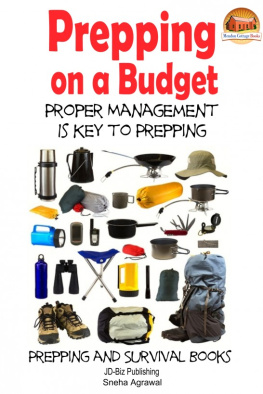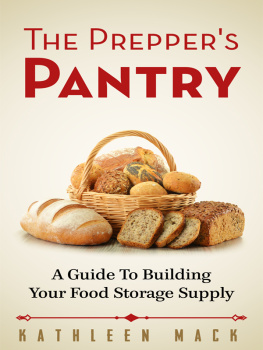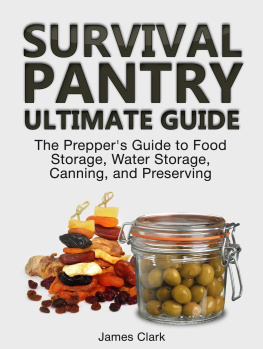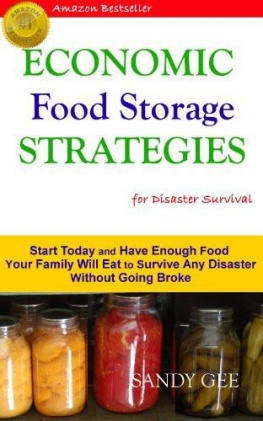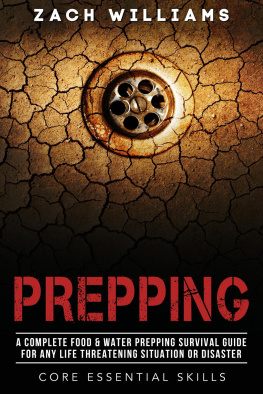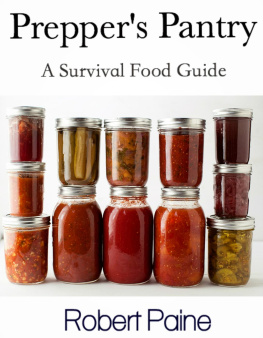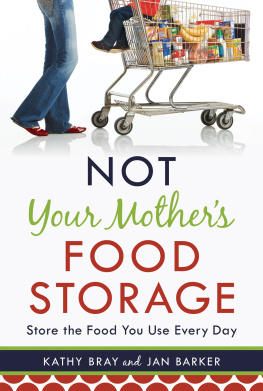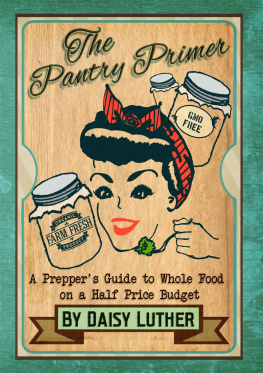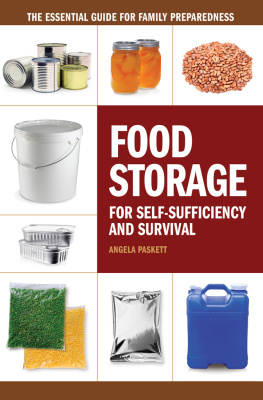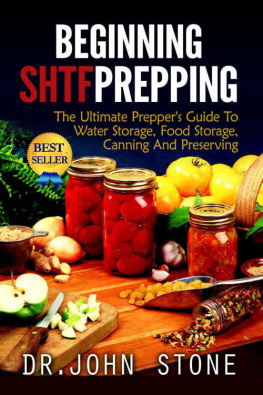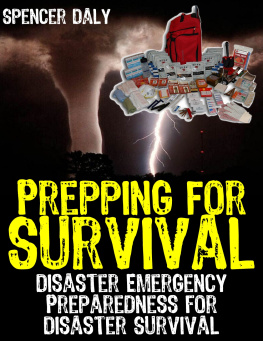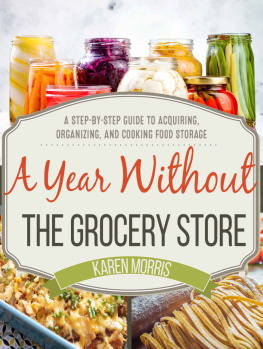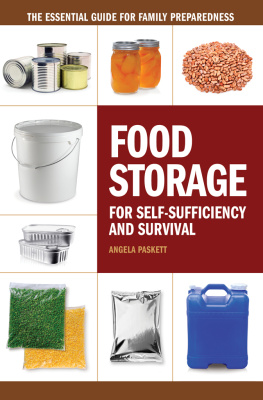Prepping on a Budget
Proper Management Is Key to Prepping
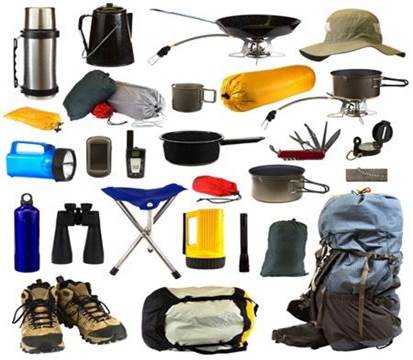
Prepping and Survival Series
Sneha Agrawal
~~~
Smashwords Edition
Mendon Cottage Books

JD-Biz Publishing
All Rights Reserved.
No part of this publication may be reproducedin any form or by any means, including scanning, photocopying, orotherwise without prior written permission from JD-Biz CorpCopyright 2014
All Images Licensed by Fotolia and 123RF.
Disclaimer
The information is this book is provided forinformational purposes only. It is not intended to be used andmedical advice or a substitute for proper medical treatment by aqualified health care provider. The information is believed to beaccurate as presented based on research by the author.
The contents have not been evaluated by theU.S. Food and Drug Administration or any other Government or HealthOrganization and the contents in this book are not to be used totreat cure or prevent disease.
The author or publisher is not responsiblefor the use or safety of any diet, procedure or treatment mentionedin this book. The author or publisher is not responsible for errorsor omissions that may exist.
Smashwords Edition, License Notes
This ebook is licensed for your personalenjoyment only. This ebook may not be re-sold or given away toother people. If you would like to share this book with anotherperson, please purchase an additional copy for each recipient. Ifyoure reading this book and did not purchase it, or it was notpurchased for your use only, then please return to your favoriteebook retailer and purchase your own copy. Thank you for respectingthe hard work of this author.
Warning
The Book is for informational purposes onlyand before taking on any diet, treatment or medical procedure, itis recommended to consult with your primary health careprovider.
Table of Contents
Introduction
We are aware of the fact that disasters canstrike at any time of day, and at any place. We are also aware ofthe fact that we should remain prepared to overcome any suchsituations and for that we should have some kind of backup.
We even know that we should always have somekind of food and water storage, for some days; this will ensurethat we are able to live a normal life until the bad effect of thedisaster is over. But, the whole question is do we actually followthe simple rule of life, or do we even know the whole process ofprepping? Most of the time people face some kind of atrocioussituation only because of lack of knowledge about a particularthing. This same case is applicable here, where one does not haveadequate knowledge on what to store and how much to store. Wesometimes waste a lot of money on buying what is not important andeven if we buy correct supply, we do not have adequate knowledgeabout the storage system of food. This leads to wastage of lot ofmoney, and also does not provide surety on the survival plan.
In this book we will discuss about all theparts in detail, so that a person is able to fight back in toughsituations, without having to invest a lot of money in it.
Why isit so important to save food?
We stay in a world, which is under the threatof some kind of disaster, every single minute. Usually people donot have control over any kind of disaster, despite the fact; weshould not give ourselves to the external situations.
We have a few basic necessities in life,without which it will be impossible to sustain in the world; foodand water. When disaster strikes, availability of these two basicnecessities gets jeopardized. One can have to face any kind ofnatural disaster like hurricane, heavy storm, blizzard, heavy windsand etc. or some manmade disasters; it also becomes tough tocomprehend the number of days it will take for everything to goback to its normal state. At such times, it is very important tohave a basic food supply stored in the house.
The local government and the rehabilitationteam, goes at length, to provide help to all those people who areaffected by a calamity, by providing them with food packets.However, the team does not provide the food packets on the basis ofnumber of residents in a household; rather it follows a uniformsupply policy for each household. This is one more reason formaintaining a proper food supply, for a few days, to combat anykind of disaster.
It isimportant to plan before storing
There are a few factors which we need to knowbefore we could start storing food as per the contingency plan. Atfirst we need to determine the number of permanent members of ourhouse and their special requirements, if any. For example, if wehave a diabetic patient staying with us, or an infant we need totake care off, they are supposed to follow a specific kind ofdietary plan and we need to store the food accordingly.
We also need to look around the place we stayin and determine the availability of free space, which can make useof, for proper storage of food. It must not happen that we wasteour money in providing food for rodents!
Before storing the food, we should be wellversed with the geographical location and its factors. For example,if we stay in a hilly area then our food storage plans will bedifferent as compared to when staying at some beach area.
There is one more thing to remember and thatone is supposed to keep food that has good shelf life even withouta refrigerator, and can be cooked without much of a heat. We willalso keep in account that water might not be available at the timeof a disaster strike, so we should store food that require lesswater for preparation. It is advised to store food that is lightand easy to carry because one might have to relocate for some time,and carrying bulky food might not be a good idea.
Allocation of money for storing food
It is important to understand the importanceof storing proper food and water, to combat any kind of disastroussituation. We will need to spare some money, so that we can gettogether a prepping plan on budget. It is not necessary to storeheavy price food items for disaster, but the normal food productsitself. If you can have regular food even at the time of disasterthen you will feel at home, and will be able to calm your mind.However, you will need to dispense some money in storing the food,which you can do over a period of a few weeks. It is not importantthat you store all the food at once and spend all your savings onit.
Let us take one example to understand itbetter. Hypothetically, let us assume that you use one liter ofolive oil in a month, and then just before the month ends, you putolive oil in the purchase list during your next visit to grocerystore. Now, this time you are supposed to buy two bottles of oliveoil in the list and as soon as one bottle is consumed, buy one morebottle again. This will ensure that you always have a bottle ofolive oil extra in your store. When you allocate your budget inthis way, then you will not even feel the pressure of the budgetand you will be able to manage any kind of situationsuccessfully.
Properfood management
Disasters do not happen often, but it takes acontinuous preparation to combat any kind of disaster. It is notonly necessary to store food and water for contingencies, but it isalso very important to manage them properly. We need to keepreplenishing our food stock, with the latest manufactured ones, andneed to use the old stock. One should not just throw away thestocked food item, because they could not be used during somedisaster. We should always keep looking at the expiry datesmentioned in the stored food items and consume them when they startgetting old. We do not store any special kind of food for ourdisaster management plan, but we store daily routine food items, sowe can use them even on a daily basis. This proper management offood will also help us manage our scarce funds diligently.

